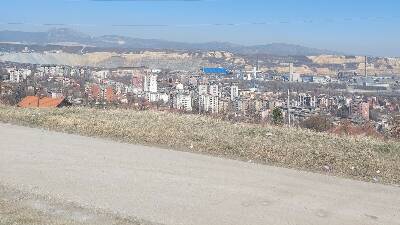EU must act to stop Balkan coal power ecocide
Coal power in the Western Balkans is threatening farmers' livelihoods, damaging homes and devastating livelihoods. The European Union must make funding to the region conditional on protection of the environment and human rights.
The Western Balkans has some of Europe’s highest air pollution levels. Serbia and Bosnia and Herzegovina source most of their energy from fossil fuels, especially domestically produced coal, with little regard for its impact on local communities.
Most of the coal power plants were constructed during the Yugoslavia era, but a recent expansion of this polluting energy source has been funded by controversial Chinese-backed investments, often without environmental impact assessments and despite China’s committment to cease funding coal power.
Local communities have fought for years to be re-located or fairly compensated for the impact of pollution and land erosion from mines and power stations. They have lost their land and livelihoods, seen their houses crumble around them and their health deteriorate due to coal-related diseases..
In a new briefing paper for EU institutions, "EU must act to stop coal power ecocide in Western Balkans", FIAN International and local civil society groups highlight the harm inflicted by coal power and call for justice for the affected communities, including resettlement, compensation and the implementation of the EU's Green Agenda for the Western Balkans.
“Apart from its impact on climate change, coal power jeopardizes internationally agreed human rights, notably the right to a healthy environment, the right to water, the right to health and the right to adequate food and nutrition,“ says FIAN International's Angelica Castañeda Flores.
“This ecological destruction shows how closely ecological health is intertwined with human life and wellbeing.”
FIAN International has met affected people in several locations dominated by largescale coal mining and highly polluting coal power plants, notably Klicevac and Drmno villages, in eastern Serbia; Sanski Most in northwestern Bosnia and Herzegovina; and Ugljevik power plant and coal mine in the country’s northeast.
“Most people living next to the mine are demanding resettlement and to get arable lands … to receive real compensation, to live somewhere else, to save their children, their lives and their health from the impossible living conditions," says Zvezdan Kalmar from Serbia’s Center for Ecology and Sustainable Development (CEKOR).
Ecological destruction
Testimonies, combined with observations by FIAN International, point to clear signs of ecological destruction, with devastating consequences for local people.
This includes waterlogging, water shortages and lower agricultural yields. Air and water pollution and changes to wind patterns from large scale excavations were also reported, as well as crop diseases, damage to people’s houses and farm buildings and increased instances of respiratory illness, allergies and other serious health issues.
Despite this, the governments of Serbia and Bosnia and Herzegovina have yet to act. There is a shocking lack of transparency, participation, and local democracy in both countries combined with repeated failures to conform to national and international legal frameworks. Local communities are rarely consulted and there is little evidence of credible environmental impact assessments.
This is a clear breach of the states’ international human rights and environmental obligations and commitments including the International Covenant on Economic, Social and Cultural Rights (ICESCR), the UN Declaration on the Rights of Peasants and other People Working in Rural Areas (UNDROP), the Convention on Biological Diversity (CBD) and the Paris Agreement on Climate Change.
FIAN International joins local civil society groups, CEKOR, CZZS, Aarhus Center in Bosnia and Herzegovia, and the communities in demanding urgent action from the governments of Serbia and Bosnia and Herzegovia and the EU to address these serious environmental and human rights violations and to establish proper remedy mechanisms to compensate and resettle affected people.
These two EU candidate countries must fully respect their national and international environmental and human rights obligations and commitments. And the EU must do more to address the sizeable challenges related to coal power in the region, and to implement the European Union Green Agenda for the Western Balkans, not least by making any future EU funding conditional on demonstrating respect for environmental and human rights.
Read the briefing paper here.
For more information or media interviews please contact Tom Sullivan, FIAN International Communication & Campaigns: sullivan@fian.org / WhatsApp: +46 73 046 2753
